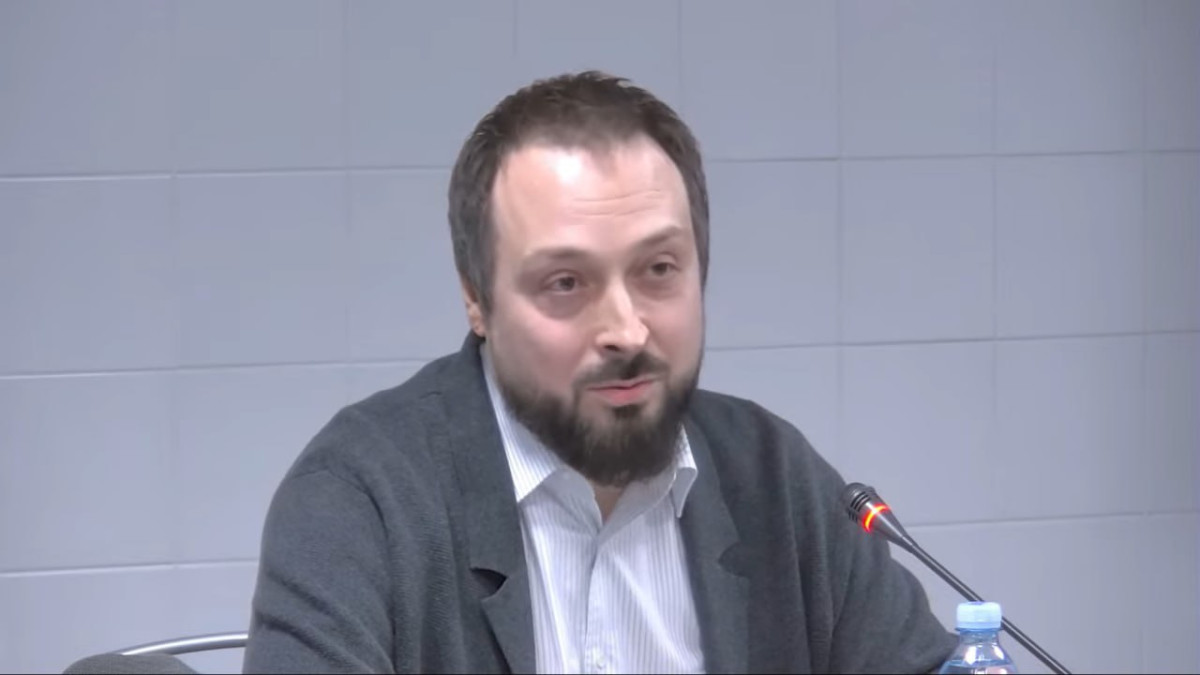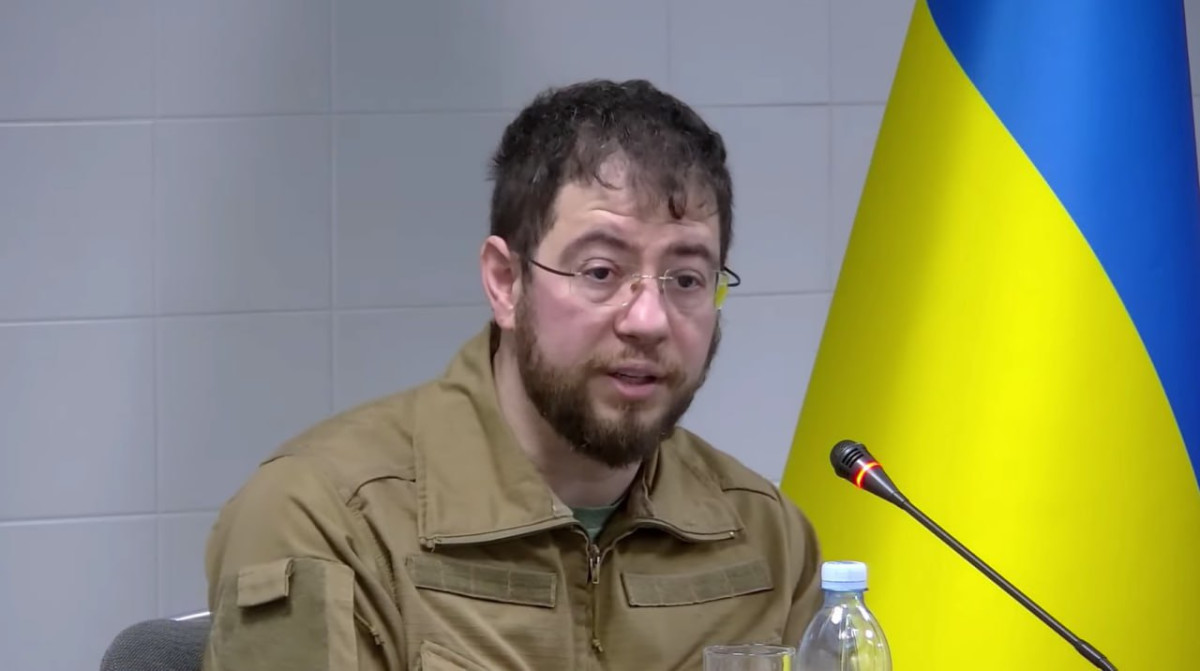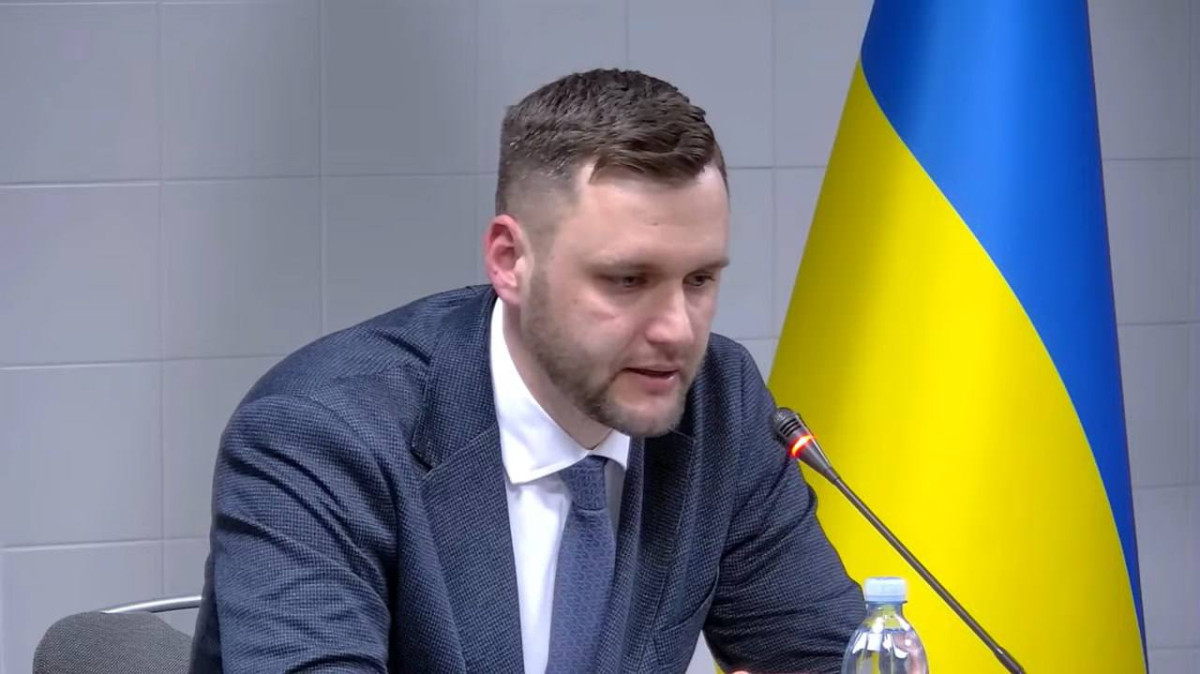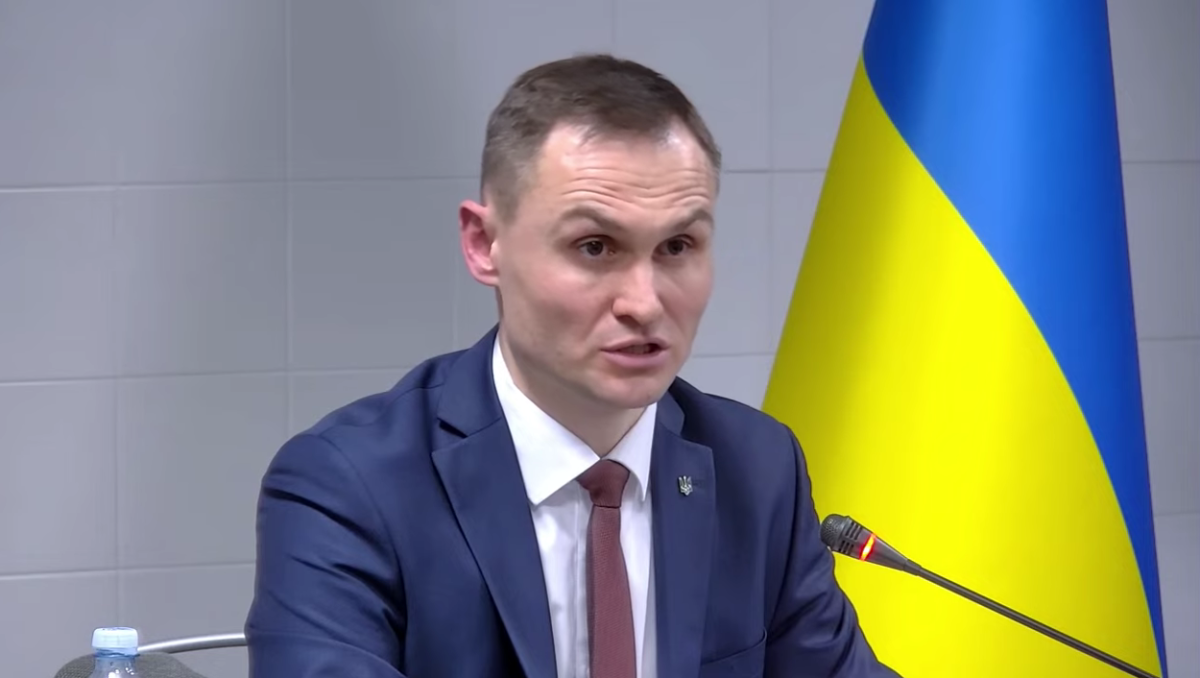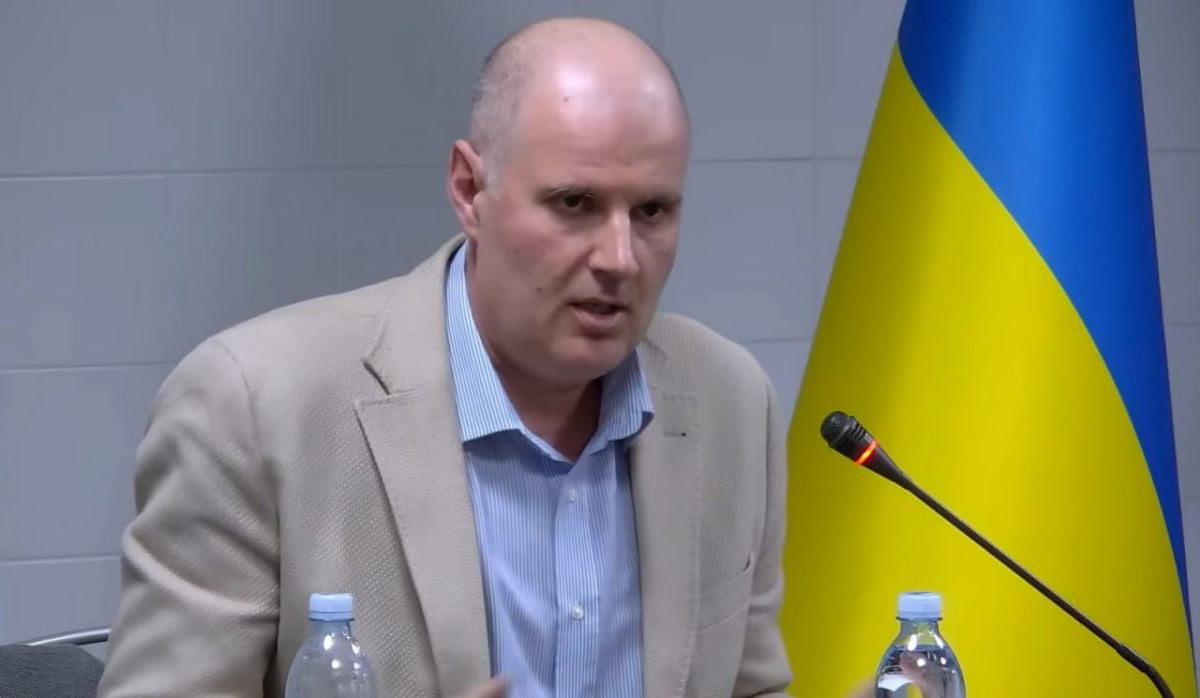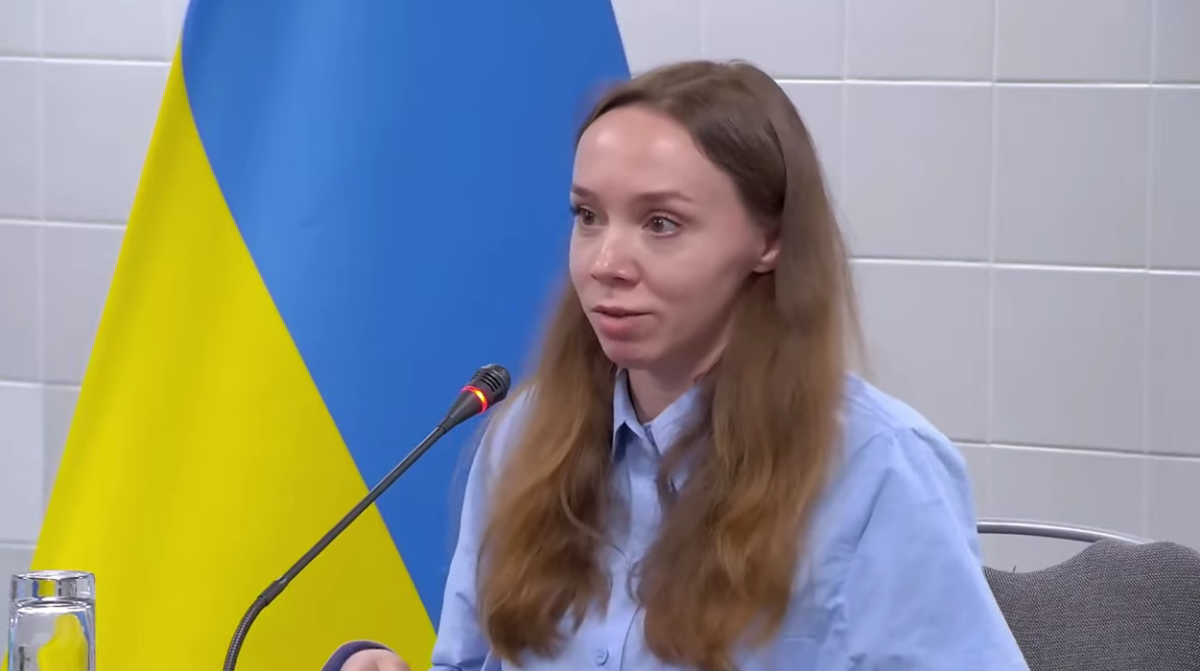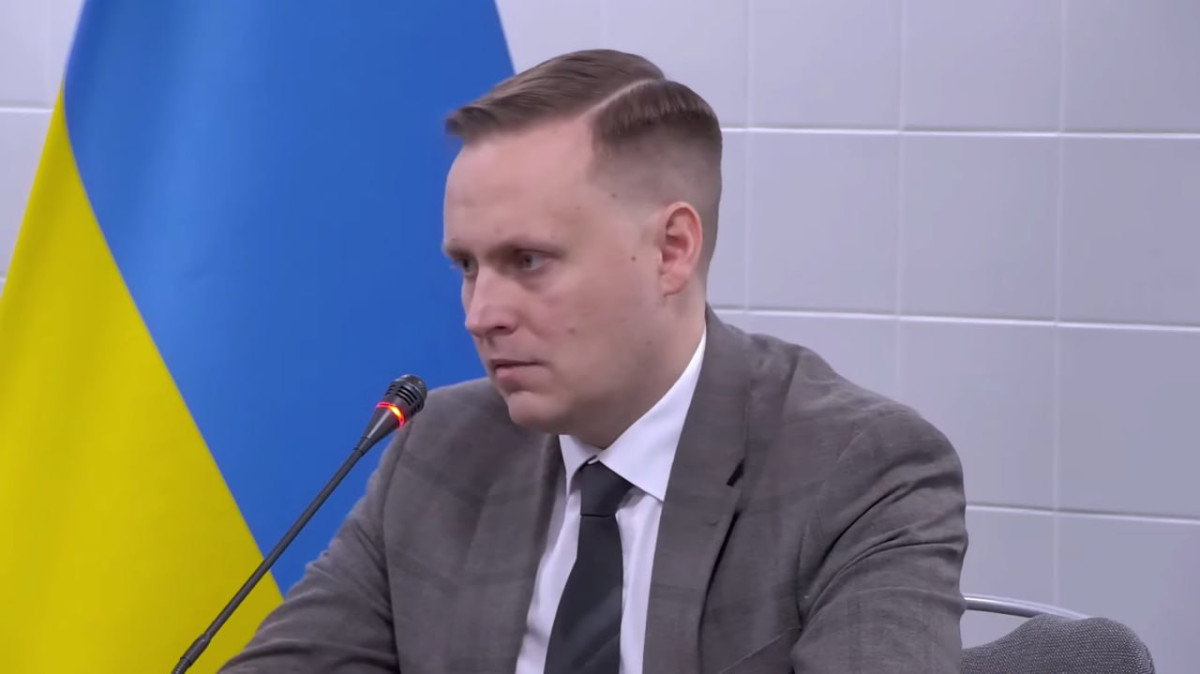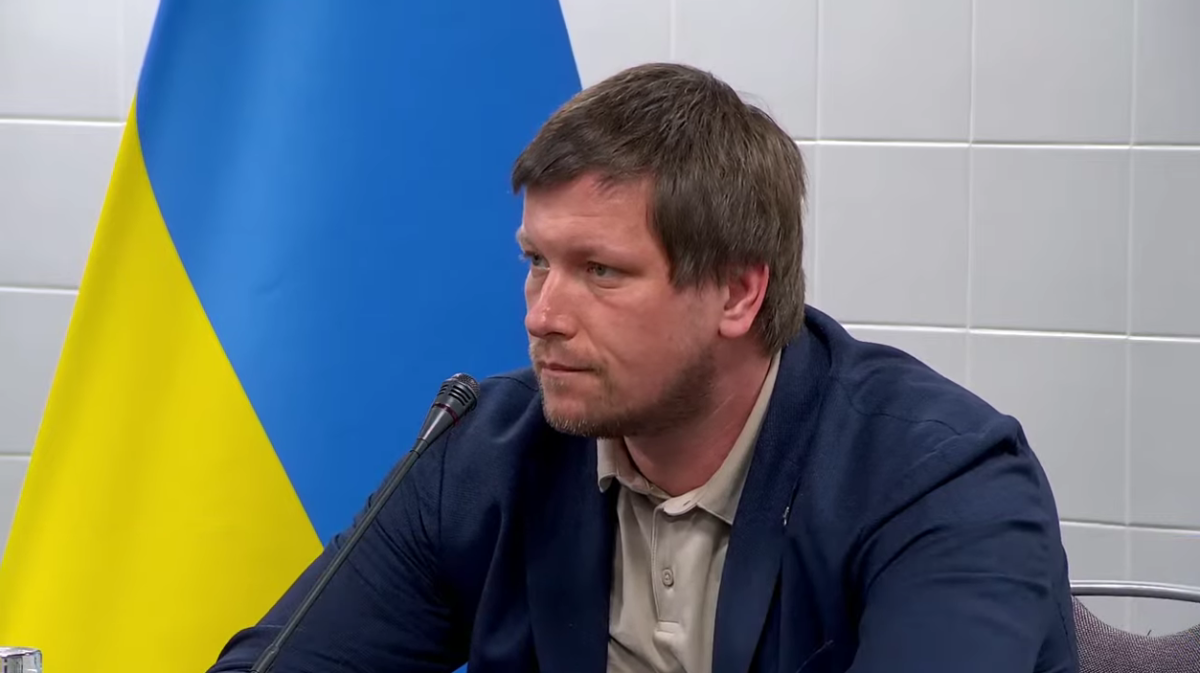

On February 24 and 25, the Commission for the selection of the NACP Head held final interviews with applicants for this position.
The participants of this stage of the competition were Andrii Vyshnevskyi, Serhii Stepanian, Viktor Pavluschyk, Vitalii Nikulin, Dmytro Kalmykov, Serhii Hupiak, Oleksandr Skomarov, Kateryna Kapliuk, Oleksandr Skomarov, and Artem Khavanov.
Previously, we already published profiles of candidates and notes from integrity interviews, and now we share the key moments from the interviews about the future plans of the candidates for the position of the NACP Head.
Andrii Vyshnevskyi
Former Deputy Head of the NACP. He holds a master’s degree in public policy from Oxford, and is also qualified as a lawyer and a teacher of biology and chemistry.
The candidate considers his ethical position, consistency in serving the public interest, and a clear choice of educational institutions to be his strongest qualities. Vyshnevskyi mentioned a lack of political flexibility as his weakness.
Among the situations where Vyshnevskyi showed himself as a good crisis manager, he mentioned the development and approval of the State Anti-Corruption Program in a short period of time, although the part on reforming the system of the Prosecutor General’s Office was lost in the program. He also noted the implementation of free legal aid in 2012.
On the first day of work in the position, Vyshnevskyi would redistribute the volume of tasks of the NACP because a number of tasks is unfulfilled due to a lack of personnel. In the first week, he would begin the process of reorganizing the system of planning work of the NACP, since, in his opinion, the current OKR methodology is not suitable for a public authority. In the first year, Vyshnevskyi plans to focus on implementing the recommendations of the European Commission.
If he becomes the head of the NACP, he also plans to finally approve and adjust the procedure for logical and arithmetic control (LAC) in the verification of declarations, as well as to cease activities with the “register of international sponsors of war,” which he considers to be “unauthorized.” At the same time, the candidate separates the direction of the state sanctioning policy, in which the role of the NACP should be approved at the legislative level, subject to the adoption of a political decision by the authorities.
The candidate believes that the NACP’s resources should be distributed more or less equally between full checks of declarations and monitoring of the lifestyle of declarants. The issue of how many declarations will undergo full checks must be agreed within the NACP together with other stakeholders.
The commission also considered such a problem in the work of the NACP as ineffective use of resources during the verification of declarations. In addition to the already mentioned LAC system, Vyshnevskyi sees a way to solve this, in particular, by raising the error limit to separate inaccurate data from signs of illegal enrichment.
Vyshnevskyi also shared his view on how to successfully implement control measures among public institutions. In his opinion, anti-corruption commissioners, who would be assisted by the NACP, should constantly work in other bodies.
Vyshnevskyi considers criticism to be one of the resources for self-improvement. Therefore, if his activities were considered ineffective, he would rely both on the opinion of colleagues and partners from the sector, as well as on an independent assessment of the work of the NACP.
In the end, the candidate was asked about the role of the NACP in potential monitoring and prevention of corruption among donors who provide us with financial support. According to Vyshnevskyi, the Agency can do this at the will of donors, but it must do so since the allocated resources become the state property of Ukraine.
On the first day of work in the position, Vyshnevskyi redistribute the volume of tasks of the NACP because a number of tasks is unfulfilled due to a lack of personnel.
Serhii Stepanian
Acting Director of the Corruption Prevention Unit at the Ministry of Defense. Graduated from Yaroslav Mudryi National Law Academy.
In the first one hundred days as the Head of the NACP, he plans to review the situation within the structure and staff of the NACP, work processes. Until he personally reviews many points, he will not make a decision. Stepanian would focus his attention on the independent audit report, which can be used as a “road map.” In 100 days, he would like to correct the organizational and staffing structure, all that directly depends on the NACP, and then he would take up more global tasks.
Stepanian states the need to define the criteria of “integrity” by law, which must be submitted to the Verkhovna Rada and voted on because it is important for officials to understand these criteria. He believes that it is necessary to fight corruption systematically and eliminate it deeply in general and remove the very cause.
He called the biggest achievement in his current position the fact that, together with the team at the Ministry of Defense, they began to change the rules of the game and introduce procurement control systems and restored anti-corruption control in these processes, which did not exist before.
Answering the commission’s questions about corruption scandals in the Ministry of Defense, he said that when the war began, the Ministry was not ready for wartime procurement. When he joined the team in 2023 amid all the scandals, it began to re-establish control over procurement, which resulted in far fewer scandals. Materials were also handed over to law enforcement agencies as part of the anti-corruption unit. According to Stepanian, the Ministry of Defense is currently working to prevent the recurrence of such situations. He expressed his opinion that the Ministry of Defense, instead of recognizing the problem in communication of corruption scandals, began to defend itself.
The candidate believes that the leadership of the NACP should not engage in micromanagement and try to manage all four hundred employees of the NACP, but should trust their subordinates.
He noted that the NACP should explain why it changes the explanation in the declarations and make sure that each declarant is aware of it. He also believes that there is no need to reform anything in the NACP, but that the institution that already exists needs to be improved and the tasks that already exist need to be carried out.
In addition, the candidate considers it necessary to reduce the number of declarants and leave among them only those who really have an influence on corruption in the state, and in order to reduce corruption-causing factors, it is necessary to increase the salaries of employees.
If he is elected as the Head of the NACP, then he will consider the future existence of an honest independent public institution and the NACP itself a success, when there will be no objections to the work of the Agency and its Head in the course of independent audits.
When asked what kind of experience qualifies him for the position of the head of the NACP, Stepanian noted that he was the only candidate, endowed with such a large set of skills and experience, there are no other such applicants.
In the first one hundred days as the Head of the NACP, he plans to review the situation within the structure and staff of the NACP, work processes.
Viktor Pavluschyk
Head of a NABU detective department and senior detective. He applied for the position of director of the National Bureau, has the qualifications of a lawyer and an international economist.
The candidate considers his strengths to be that he always seeks to analyze information through various sources and that he has practical work experience. But he still needs to work on public speaking.
The member of the commission emphasized that during the interview, Pavlushchyk repeated several times that “he is not the smartest and not Wikipedia,” so a question arose about the candidate’s leadership skills. To this, Pavlushchyk noted that he was still a leader, not an executor of instructions “from above.”
While working at the NABU, the candidate did not feel any political pressure from the outside, although he mentioned institutional attempts to worsen the situation of detectives. At the same time, Pavlushchyk recalled cases when he was personally threatened with violence and destruction of property.
If Pavlushchyk heads the NACP, his primary tasks will be getting to know the team, analyzing the implementation of audit recommendations and European Commission recommendations, focusing on de-bureaucratization and digitization of the Agency, as well as rule-making activities.
Pavlushchyk also sees the prevention of corruption through communication with the population and training people, in particular, on the rules of declaration, among the priorities of the NACP. In his opinion, Ukraine should forget the slogan “so that there is no corruption in Ukraine and there is a friend who can solve any issue.”
Pavlushchyk considers aspects such as full checks of declarations, monitoring of conflicts of interest, and lifestyle monitoring to be equally important for the Agency. Furthermore, in his opinion, the NACP should train anti-corruption commissioners because they can convey information to users of the Agency’s services.
At the end of the interview, Pavlushchyk was asked if he did not see any contradictions in the explanations of the NACP regarding declaration, conflict of interests, and whistleblowers of corruption. He replied that the clarifications became much better since the beginning of the Agency’s work, but are still subject to development. In particular, their understanding can be simplified for non-lawyers.
At the commission’s request to convince it of confidence in Pavlushchyk’s future activities, he noted his determination, efforts in all areas of work and desire to improve Ukraine so that future generations do not know about the old Soviet mentality.
If Pavlushchyk heads the NACP, his primary tasks will be getting to know the team, analyzing the implementation of audit recommendations and European Commission recommendations, focusing on de-bureaucratization and digitization of the Agency, as well as rule-making activities.
Vitalii Nikulin
Representative of the ombudsman in places of detention. He graduated from Yaroslav Mudryi National Law Academy of Ukraine and the National Technical University Kharkiv Polytechnic Institute. Prior to his appointment to the position of representative of the ombudsman, he worked for a long time in the Kharkiv City Council, in particular as the head of the advertising department.
During the interview, the commission asked what motivated the candidate to lead the NACP. Nikulin replied that positive changes in the country were important to him. He already has ten years of experience in managing various teams, and currently his team includes about 250 people, more than half of whom are representatives of civil society organizations. Therefore, although organizing the work of a large number of people is not an easy task, he manages it. “I understand that it may be difficult to understand some processes at first. But the principles of management are the same.”
The commission also asked about how the candidate, in case of his selection as the Head, sees the interaction of the NACP with the Cabinet of Ministers. Nikulin considers this work to be logical because, first of all, it is the government that appoints the Head of the NACP. Secondly, it is the government that can help with strengthening the institutional capacity of the NACP — in matters of staff expansion, formation of territorial divisions, and financing. And the third aspect of the work, according to Nikulin, is the issue of rule-making. Nikulin is convinced that cooperation with the Cabinet of Ministers is a priority, but the NACP Head must maintain their independence.
The candidate shared his vision of how to launch the operation of territorial divisions of the NACP. According to him, it is the territorial division that will help with the implementation of the state anti-corruption policy locally, will contribute to the prompt response to offenses, will ensure the representation of the interests of the NACP in courts, and will also help to establish effective contact with whistleblowers. In this way, it will be possible to relieve the central apparatus so that it deals with more strategic issues.
The commission was also interested in how the candidate proposed to improve the existing areas of work of the NACP. Nikulin believes that the existing format of declarations is quite sufficient for obtaining the necessary information about officials, and the list of declarants, in his opinion, is also quite comprehensive. But for new declarants, Nikulin suggests creating a draft declaration that will automatically collect information about a person from various registers.
However, the candidate had questions about the operation of the logical arithmetic control (LAC) module. According to Nikulin, it is necessary to constantly improve this LAC and create such conditions so that it detects corruption risks. But currently, there is no corresponding provision on the LAC in public access, so he cannot dwell more comprehensively on how it should be changed.
At the same time, Nikulin noted that currently, the NACP performs certain functions that are not provided for by legislation, and this should not happen. In his opinion, for example, issues related to sanctions, although this area is very important, should be carried out by competent public authorities; currently, even the NACP website does not contain information about the Agency’s activities in this sphere. Therefore, the candidate generally does not mind if the specialists who are currently engaged in this matter at the NACP move to the relevant divisions of these bodies. Moreover, according to Nikulin, there is a problematic issue of passing special checks.
Similarly, Nikulin recognizes that the current approach to filling the Register of Corrupt Officials is inappropriate because “as of today, there is a problem of entering information in this register about such people who, in principle, should not be mentioned in it.” According to the candidate, it is necessary to adjust the list of persons who should be entered, as well as decide on the term of their stay in this register.
Nikulin also believes that the work of the NACP in the field of monitoring the financing of political parties is ineffective. “If we can fight corruption in politics, then all other spheres of public life will be directly freed from such a shameful phenomenon,” said the candidate.
Dmytro Kalmykov
The head of the anti-corruption policy department of the NACP. He holds a master’s degree in law and finance.
Kalmykov named 3 things that he succeeded in: uniting a team of 20 professionals around common values, developing the Anti-Corruption Strategy, and then a Program for its implementation (SAP) in a very short period of time, as well as developing sanction legislation. At the same time, among the things that did not succeed in, the candidate indicated that he failed to convince the management of “a clearer division of functions for policy formation and its implementation,” as well as “that the key anti-corruption potential is contained not so much in the inspection functions, but rather in the identification of the areas most affected by corruption.”
According to Kalmykov, the most critical situations in his professional activity were 2 cases. When he had to prepare the State anti-corruption strategy in a very short time, and then the State anti-corruption program. In order to implement these important documents, according to Kalmykov, he and his colleague Ivan Presniakov were able to get in touch and unite key specialists from public institutions around them, establish contacts with several dozen profile stakeholders in the relevant fields. The candidate also noted that during the development of the SAP, 11 public hearings were held, which, according to him, is the largest number in the history of Ukraine when discussing documents. And during the adoption of the Anti-Corruption Strategy, there were 7 public hearings.
When asked by the commission whether he agreed with the results of the independent audit of the NACP, Kalmykov replied that he accepted the absolute majority of the comments made in the document. He also agrees with the fact that a number of structural units duplicated functions, some units performed functions not inherent in them, and some units began to perform functions not provided for by law at all. Kalmykov believes that the consideration of such remarks to be one of the key and priority tasks for the future Head.
Among other things, Kalmykov emphasized the need to take away the department dealing with sanctions from the NACP. Kalmykov said that one of his first decisions in case of being elected as the Head will be the immediate termination of all functions not typical of the National Agency, including the sanctions unit of the NACP.
When asked by the commission whether Kalmykov regrets any of his actions, the candidate replied that in his professional life he has no cases for which he would be ashamed. But from a personal perspective, he told a story from his childhood, when he, being a seven-year-old boy, did not stand up for his older brother.
Serhii Hupiak
The head of the Vinnytsia Territorial Administration of the SBI. In 2008, he received a specialist diploma from Yaroslav Mudryi National Law Academy of Ukraine, and in 2012 he obtained a master’s degree with the National Academy of Prosecutor’s Office.
The commission asked him about the methods and objects of financial control that the candidate would get rid of if elected as the Head of the NACP. To this, Hupiak replied that he saw the reduction of financial control as cutting both ways because after the changes in the legislation, those persons who avoided financial control would also avoid responsibility for conflict of interests, violation of other anti-corruption restrictions, and the like. In Serhii’s opinion, the very structure of the declaration is made harmoniously, and the objects to be declared are balanced.
Serhii would prefer to add a test of general abilities to the personnel selection process, and the results of the psychological test can be of a recommendatory nature for choosing the direction of the employee’s work.
He sees the following key performance indicators in the case of his appointment: the reduction of corruption risks in the six key areas defined by the anti-corruption strategy, in particular in the field of defense. However, Serhii believes that the current anti-corruption strategy and the anti-corruption program in the field of defense are not adapted to the current wartime and require significant changes.
In the field of defense procurement, he believes it is important to define a clear methodology, a pricing algorithm. For this purpose, he considers it expedient to strengthen the function of the NACP on anti-corruption examination of regulatory acts by significantly expanding the staff of anti-corruption experts of the NACP. To make the conclusions of the examination mandatory for consideration, to create the possibility of its initiation by the NACP. He has an idea to create an interdepartmental working group that would help take into account the gaps in the legislation discovered in practice.
In Hupiak’s opinion, the guarantees of the independence of the NACP are currently sufficiently high and provide the Agency with a central place in the anti-corruption infrastructure. He sees the task for the NACP Head in ensuring that these guarantees of independence are preserved and preventing the intervention of authorities and legislative amendments that would change these guarantees of independence.
Serhii sees his personal independence in the fact that he does not allow anyone from the outside to unlawfully influence him, in the ability to make decisions on his own and to be able to choose a place of work at his own will. He also sees his independence, along with integrity and systematicity, among the qualities that will help him in the position of the Head.
The commission was also interested in how the candidate evaluated the functioning of the Unified Whistleblower Portal, to which Hupiak said that it was necessary to increase the issue of protection of whistleblowers, eliminate certain contradictions in the legislation, and work on the interface of the portal itself.
The commission asked to evaluate the SBI, the current place of work of the candidate from the point of view of reformation on a scale from 0 to 10, but the candidate did not give such an evaluation because it would be contrary to his professional ethics and he “is not the head of Ukraine” to evaluate various institutions. Instead, he cited signs of the body’s independence: in particular, taking the position through competition, the absence of unlawful external influence.
Also, the candidate believes that the quantitative composition of the NACP currently does not meet the needs and scope of work, and sees his future task as initiating the expansion of the staff and the formation of territorial administrations.
Serhii sees his personal independence in the fact that he does not allow anyone from the outside to unlawfully influence him, in the ability to make decisions on his own, and the ability to choose a place of work at his own will.
Oleksandr Starodubtsev
Deputy head of the staff of the NACP. He is a financial manager by education. He also studied at the Kyiv-Mohyla Business School. In 2017-2018, he was a visiting fellow at Stanford University, California.
Starodubtsev considers three of his biggest victories during his 3.5 years of work at the NACP to be: the developed HR function, the created case management system, and his personal engagement in the development of a quality institutional strategy of the NACP.
Starodubtsev sees the future development of the NACP as follows: first of all, the Agency must balance three directions: the inevitability of punishment, the development of corruption prevention systems, and the development of integrity. Secondly, the NACP must regain the trust of all partners, authorities, and the public.
The first thing that Starodubtsev plans to do, if he is elected Head, is to rethink the strategy of everything that the NACP does and to balance the areas of work.
The commission also asked the candidate about three qualities that would make him recommended for the position of the Head. He mentioned: extensive management experience, formation of a strong team, and clarified that “the team of the board of senior managers of the NACP should not be a team of stars, but it should be a star team.” The third quality Starodubtsev mentioned was humanity.
Starodubtsev is not ready to suspend the sanctioning activity of the NACP, which is currently not provided for by legislation. In his opinion, it should be preserved until there is an entity to hand it over for management. He also promised that “this will be the first priority.” As soon as he understands the team and the strategy, he will take up the sanctions issue.
Starodubtsev imagines the register of corrupt officials as a “pantheon of shame.” And now, according to Starodubtsev, it needs to be reformed. After all, according to the candidate, now not only those who should, but also persons who have committed minor violations get there. He also believes that staying in this register cannot be lifelong.
Starodubtsev noted that the NACP under Novikov was built according to the leadership type, and that Novikov decided with whom the Agency would communicate and with whom it would not. In these conditions, Starodubtsev secretly interacted with CSOs and managers who were active in his topic. Thus, he convened a “separate meeting of the club type,” where, according to him, all anti-corruption officers and managers of the public sphere were present. Starodubtsev said it was an opportunity to just talk.
Starodubtsev sees the future development of the NACP as follows: first of all, the Agency must balance three directions: the inevitability of punishment, the development of corruption prevention systems, and the development of integrity. Secondly, the NACP must regain the trust of all partners, authorities, and the public.
Kateryna Kapliuk
She is now an individual entrepreneur, and before that, she worked in the lifestyle monitoring department at the NACP and was engaged in investigative journalism.
First of all, the candidate explained her attitude to the fact that in the previous periods, the NACP, very often was not guided by the developed regulatory acts, in particular, in the part of lifestyle monitoring, which is her work area. Kapliuk admitted that this caused a very significant and appropriate criticism from the side of civil society and from the media and international auditors. The candidate assured that she would correct this after becoming the head of the NACP because, in her opinion, it was critical that these processes took place transparently and according to regulated procedures.
The candidate spoke about the possible improvement of the declaration system. Kapliuk is convinced that it is necessary to automate the possibility of adding, for example, data about family members to the declaration. According to the candidate’s own observations, “often, false declaration occurs not because people want to hide something, but because they do not fully understand what to declare.”
Kapliuk is convinced that effective development of the system of anti-corruption commissioners, who will explain to civil servants how to fill out declarations, can help with this. This, in her opinion, will be able to strengthen the preventive function of the NACP.
The commission also asked about the appropriateness of the NACP to engage in sanctions policy. Kapliuk answered: “I believe that the NACP should not deal with this; at the same time, the NACP has a direction for assessing corruption risks. And here I see a great potential.” At the same time, the candidate considers her work in the Task Force within the framework of the development of the system of sanction lists and the search for assets of sanctioned persons to be her great achievement.
Kapliuk also spoke about the possibilities for further improvement of the monitoring of the lifestyle of officials. In her opinion, it is necessary to move to an adequate risk-oriented approach. And even though the NACP has already partially started to do this, if she became the Head, she would like to strengthen it, for example, by engaging the public in the analysis of the criteria laid down in the LAC.
The commission was also very interested in how the candidate planned to implement personnel policy. Kapliuk said that she did not plan to take a radical approach to this, but wanted to mainly rely on already existing, trained employees. At the same time, she will actively work to fill numerous vacancies in the Agency, involving recruiting agencies and communicating directly with public and international organizations where personnel may be needed.
In general, Kapliuk considers the ability to take responsibility, the ability to generate working ideas, and empathy to be her strengths. But she admits that she is working on overcoming her “black-and-white vision of the world,” which she brought with him since her days as a journalist. She is also trying to overcome the habit of controlling all the processes subordinate to her. According to Kapliuk, she already sees noticeable progress in the processes of delegation.
The commission was also very interested in how the candidate planned to implement personnel policy. Kapliuk said that she did not plan to approach this radically, but wanted to mainly rely on already existing, trained employees.
Oleksandr Skomarov
Deputy Head of the Main Detective Unit, head of one of the NABU detective units. In 2008, he received a bachelor’s degree in Law with Didorenko State University of Internal Affairs of Luhansk. In 2010, he received a master’s degree in the specialty Jurisprudence with the National Academy of the Prosecutor’s Office of Ukraine.
He considers his principles, consistency, and decency to be the strongest traits of his character, and attributes a keen sense of justice to his weaknesses. He also noted that he did not make decisions contrary to his conscience and, above all, to the law.
The candidate states that all his work for the past 8.5 years is a continuous resistance to pressure, which changes its forms and types, and that until 2019, external pressure on the NABU was permanent and “crazy,” but he asked not to draw any parallels. However, he did not give in to this pressure because “strength always lies in the law” and he plans to bring this principle to the NACP as well. He commented on the attempts to undermine trust in him as follows: “When you do something good, they constantly try to provide information on you that can somehow compromise you.”
The candidate said that he knew the state of the law enforcement system in 2015 and that positive developments took place, but there were still many problems. In his work, he is most proud of the fact that, while working in the civil service, he did not violate the rules of the “agreement” with the state, joint achievements, and the fact that it is possible to maintain a work-life balance.
At the moment, the candidate sees several main challenges regarding the activity of NACP: the war, the change of leadership, the fulfillment of many European integration requirements in a short period of time and the development of an action plan regarding the recommendations of an independent audit. Skomarov stated that he did not have the goal of working four years in the NACP without any achievements, and that he was looking for leadership and visible achievements. “We must surprise the next commission with progress,” Skomarov said.
Speaking about factors that affect the level of public trust in anti-corruption bodies, Oleksandr mentioned transparency, clarity of criteria for evaluating the effectiveness of the agency itself, and the leadership skills of the head of the NACP.
Currently, Skomarov believes that the protection of whistleblowers in Ukraine is sufficient, but it is necessary to increase the audience’s knowledge about the whistleblower portal, popularize the culture of whistleblowing, talk about the positive consequences for a whistleblower in order to change their perception.
Skomarov believes that it is necessary to take a fresh look at the activities of the NACP and understand whether all units are effectively performing their functions and how to eliminate various shortcomings. He did not criticize the previous head of the NACP, but stated that he would have done certain things differently and would like to make the NACP more open because “there is nothing to hide there.” In leadership, he adheres to the philosophy of decentralization and delegation, and he sees the role of the NACP Head more as a managerial one.
Skomarov thinks that in order for the NACP to engage in sanctions policy, it should be spelled out in the law. The candidate stated that the sanctions policy should be transferred to another body.
The candidate is convinced that strengthening cooperation with foreign colleagues is one of the vectors for the development of the NACP, so he will strive to conclude international bilateral agreements.
In the event of his election as the NACP Head, he said that there will be no “shadow director” in the Agency, and he is not going to appoint anyone based on the recommendation of the government because he will take responsibility for the effectiveness of NACP’s work.
In the event of his election as the NACP Head, he said that there will be no “shadow director” in the Agency, and he is not going to appoint anyone based on the recommendation of the government because he will take responsibility for the effectiveness of NACP’s work.
Artem Khavanov
He currently works as an anti-corruption officer at Ukreximbank, and before that, he was the head of the anti-corruption program at the Naftogaz group and the head of the compliance office at UkrOboronProm.
Khavanov is convinced that the main features of the head of the NACP are integrity, professionalism, and strong management skills, and, in his opinion, he possesses all of them. At the same time, the candidate admitted that he still did not fully understand the workload of this position, but even in his current job, he had to supervise many processes.
At the same time, the candidate emphasized that he has the experience of leading a team of more than 60 people, and “if a person is able to manage more than 20 team members, then managing more people is not a problem.” According to Khavanov, if you correctly cascade goals and are a leader, it will motivate employees.
In fact, Khavanov considers the NACP to be a kind of “compliance for the entire state,” and that is why he became interested in participating in the competition for the selection of the Head. He considers his own experience in building a culture of integrity in the private sector to be his main advantage because such practices can be extended not only to enterprises.
At the same time, Khavanov sees the strengthening of the institution of local representatives as his most important task as the NACP Head. In his opinion, this is a key element in the infrastructure of corruption prevention. And the extent to which such commissioners will be effective and honest, Khavanov believes, will also affect the improvement of Ukraine’s performance in the Corruption Perceptions Index.
When asked how exactly, in the candidate’s opinion, such a system should work, Khavanov answered that local commissioners should have direct contact with the central office of the NACP. At the same time, they should be familiar with the areas in which they work and have direct contact with senior managers of companies. For everything to work, it is necessary to provide sufficient protection and independence to the commissioners.
The candidate also plans to pay a lot of attention to the protection of whistleblowers. “The story with whistleblowers is now at a very early stage. Because, as a rule, a person who initiates the issue of exposing certain violations becomes either a martyr or a victim, not a hero, unfortunately,” Khavanov explained. That is why, in his opinion, a hotline should work effectively and clearly in Ukraine, which will help to report violations from anywhere. And the response of the NACP to such reports will be an indicator that the institution of whistleblowers is really working.
The commission also asked about the candidate’s vision for improving the problem of conflict of interests. In Khavanov’s opinion, the most important thing is to clearly communicate the approach to such policies and procedures. “Communication is key, and the better you communicate these conflict of interest management rules, the easier it is.”
At the same time, Khavanov considers the implementation of the recommendations of the external audit of the NACP to be a target position for anyone who heads the Agency. When asked what he would do if his own assessment differed from the auditors’ assessment, the candidate answered: “Who am I to argue with the conclusion of international experts?”




